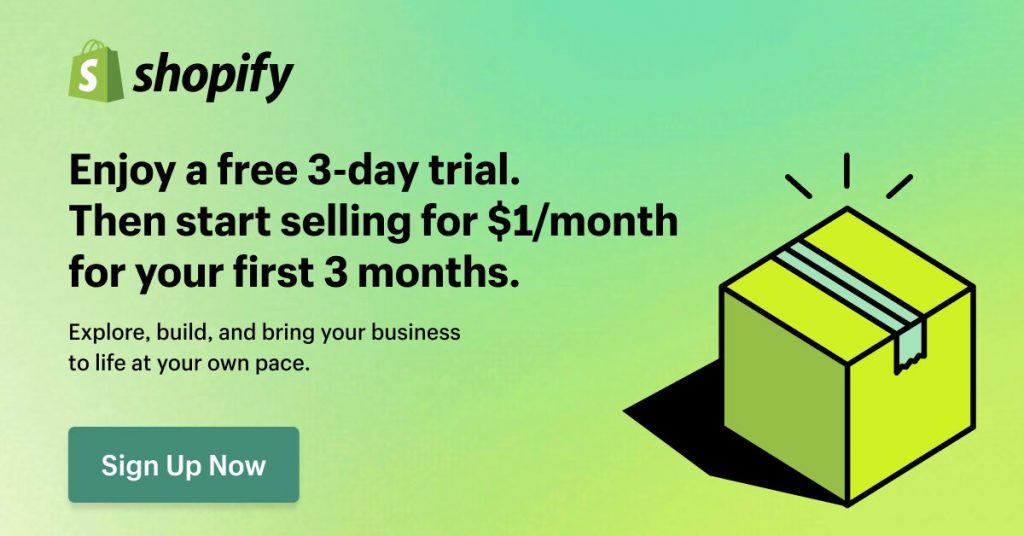eCommerce Sales Funnel: Stages, Benchmarks And Best Ways To Optimize

The ultimate goal of any eCommerce brand is to sell as many products as possible. However, this goal might be impossible to achieve if you fail to convert leads into customers. Optimizing the eCommerce sales funnel is one of the best ways to improve the conversion rate so you should pay close attention to.
See more:
- 9 Tips to Increase eCommerce Conversion Rate Quickly in 2025
- eCommerce Marketing: Best Practices to Drive Sales
- eCommerce Personalization: 30+ Examples, Statistic & Trending 2025
What is eCommerce sales funnel?
eCommerce sales funnel (or eCommerce conversion funnel) illustrates the process or the overall path customers take from being aware of your business to returning after purchasing at your online store.
eCommerce conversion funnel optimization is concerned with a customer’s stages of interest in a specific brand. Each business will develop a specific funnel that depends on their business niches and how customers interact with their brands.

5 Stages of eCommerce sales funnel
1. Awareness
The awareness stage is the “top of funnel” where potential customers become aware of your business and recognize how they can benefit from your products or offerings. The goal of this stage is to help customers realize your business can provide effective solutions for their existing problems. This could be done by delivering informative and quality content that identifies customer segmentation and introduces your brand.
2. Interest
The second stage of the eCommerce funnel is called the interest or consideration phase. Once customers get to this stage, they become interested in learning more about your brands and products, yet they are still weighing different options.
3. Decision
In the third stage of the funnel, potential customers are done with browsing your store site and searching for product information. They will experience a burning desire to make a purchase, yet they still contemplate seriously. In this stage, it is of great necessity for you to convince customers of the outstanding benefits of your products and services.
4. Action
The action stage is the most essential phase in the eCommerce funnel, as customers have made up their minds and decided to purchase at your store. To ensure that customers will finish their orders, you need to deliver a seamless customer experience, especially by leveraging the checkout process.
5. Retention
At the final stage, customers have built trust in your brand and they want to come back for more. This phase is often overlooked by eCommerce brands, but returning customers can generate high profits since the cost of acquiring old customers is less expensive. The retention stage is important to nurture customer relationships and increase customer lifetime value.
>> See more: eCommerce Cross Selling: Examples and Best Practices
Example of eCommerce sales funnel

- Awareness: Sarah is browsing social media and sees an ad for a stylish new pair of running shoes from a popular online store. The ad catches her attention because of its bright colors and catchy message, offering a 20% discount for first-time buyers.
- Interest: Sarah clicks on the ad and lands on the brand’s website. She explores the product page for the running shoes, scrolling through images and reading customer reviews. She’s intrigued by the design and positive feedback but isn’t quite ready to purchase just yet.
- Decision: Later that evening, Sarah gets an email from the brand offering a limited-time discount code for an extra 10% off the shoes. Intrigued, she adds the shoes to her cart but still hesitates because she wants to think it over. The following day, Sarah receives a push notification from the brand’s mobile app, reminding her of the shoes in her cart and offering free shipping for a limited time. This extra nudge convinces her to proceed to checkout.
- Action: Sarah decides to purchase the shoes. She enters her payment details, uses the discount code, and completes the transaction. The brand sends her an order confirmation email with shipping details.
- Retention: After receiving the shoes, Sarah gets a follow-up email asking her to review the product. She leaves a positive review, and the brand invites her to join their loyalty program, offering her future discounts and early access to sales.
eCommerce conversion funnel benchmarks
E-commerce sales funnel benchmarks can vary significantly based on industry, device, and the specific stage of the funnel. Here’s a breakdown of key eCommerce conversion funnel benchmarks following to Smart Insight:
- Product Page Views: Approximately 50% of website visitors view a product page.
- Add-to-Cart Rate: The percentage of visitors who add items to their cart is considerably lower than the percentage who view a product page. Dynamic Yield found this to be 7.7% overall, with 8.9% on desktop and 7.3% on mobile.
- Purchase Rate: Only a small percentage of visitors actually make a purchase. In one example, only 3.3% of visitors made a purchase, even though nearly 50% viewed a product page.
- Cart Abandonment: Cart abandonment rates are high. Dynamic Yield reported a combined cart abandonment rate of 71.3%, with 77.2% on mobile and 57.9% on desktop. Another source states that over 70% of customers are likely to abandon their cart.
- It’s worth noting that even though 70% cart abandonment is often seen, 40% cart abandonment can be considered not bad.
- General trend: A visual diagram from Smart Insights indicates that nearly 50% of visitors view a product page, 15% add a product to their cart, and 3.3% make a purchase.

Ways to optimize eCommerce sales funnel
By optimizing each stage of the eCommerce funnel, online brands can make it easier to convert potential customers and achieve sales goals:
Awareness stage
1. Focus on content quality
You should bear in mind that content in this stage focuses on delivering valuable knowledge and resources to customers, rather than attempting to sell anything. Even without a huge advertising budget or a big marketing team, it’s still possible to create helpful and quality content guides on eCommerce sites or social media channels.
2. Utilize excellent SEO/SEM
Whenever customers need a particular product (e.g. running shoes for women) or a solution for a problem they are facing (e.g. how to prevent pimples), they are likely to do an online search. Therefore, by increasing search results ranking, you can get more chances of increasing customer awareness.
>> See more: Best Ecommerce SEO Practices for Beginners: Do’s & Don’ts
3. Create a referral program
Customers tend to refer a product to others who share the same interests or problems. Referral programs are a great tool that helps your online store increase brand awareness to the right audience.

Consideration stage
4. Use simplified navigation
A complicated navigation will make potential customers feel lost and they might abandon your site after a few minutes. Remember to use navigation wisely by providing sufficient navigational elements that help visitors know where they should browse next.
5. Display social proof
When customers view social proof from credible influencers and customers, they will put their trust in your brand. Some of the best ways to implement social proof are using customer testimonials and encouraging user-generated content.

6. Integrate social media
Always link all your social media channels, such as Facebook, Instagram, or YouTube accounts in the storepage to make sure customers know how to reconnect with your brand after they leave your sites.
Decision Stage
7. Optimize product page
Online shopping means instead of trying on real items, customers can only rely on the product information you provide. Seize this chance to convince customers by including your product page with clear product descriptions and high-resolution visuals.

8. Create irresistible promotions
One of the best ways to lure customers to purchase at your online store is to offer them attractive perks and promotions, such as free shipping, discounts, and a return policy.

>> See more: 5+ Free Shopify shipping policy templates [Google docs]
Action Stage
9. Provide a seamless checkout experience
Once visitors decide to purchase products from your store, the checkout page becomes the final wall between you and customers. Make sure the checkout process is not too long and complicated, and providing a predictive entry to auto-populate fields is a smart choice.
10. Integrate various payment methods
As customers might have myriads of ways to pay, it’s essential to meet their preferences by integrating various forms of payments and digital wallets such as Android Pay, Paypal or Apple Pay.

Retention Stage
11. Prompt customers to create accounts
Asking customers to create accounts not only helps you to collect their information with ease, but customers can also make a faster purchase on their next time order.

12. Promote loyalty program
To enhance customer lifetime value, there is no better way than offering customers to join your loyalty program after they finish their transactions. Introducing a loyalty program to new members creates a sense of exclusivity and belonging, making them want to return for purchase more next time.

>> Don’t skip: 7 Best Loyalty Program Apps To Boost Customer Retention
13. Implement email marketing
Effective email marketing enhances customer relationships and greatly boosts the retention rate at your store. Sending a thank-you email with exclusive recommendations based on customer’s previous orders is a great way to turn new buyers into loyal customers.
Important KPIs for eCommerce sales funnel optimization
In order to effectively optimize the eCommerce funnel, you need to constantly monitor certain KPIs (Key Performance Indicators) at every stage of the funnel. The total number of KPIs can be overwhelming, but there are some key KPIs that you need to carefully analyze. These KPIs provide actionable insights into business performance to help you make strategic adjustments to the eCommerce funnel optimization process:
- Conversion rate
- Cart abandonment
- Site traffic
- Bounce rate
- Customer lifetime value
>> For a detailed description of all the mentioned KPIs, please have a look at Essential eCommerce KPIs for Online Business
Conclusion
The key for an excellent eCommerce sales funnel is to understand how prospective customers are moving through the funnel and optimize each stage to gain higher conversion. Though optimizing the eCommerce funnel might sound complicated with a huge workload to finish, it is extremely essential to multiply revenues at your online store in the long term.

